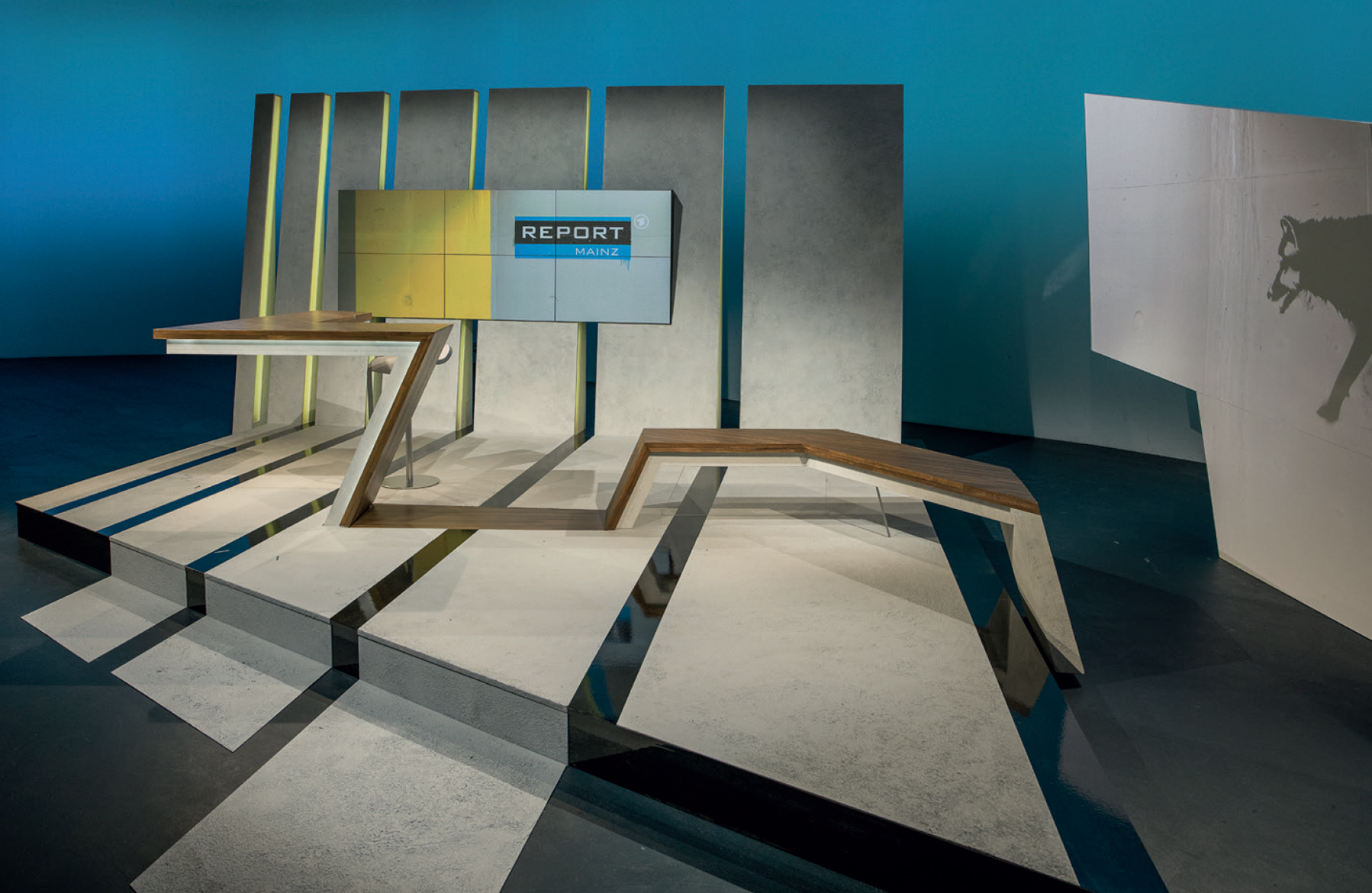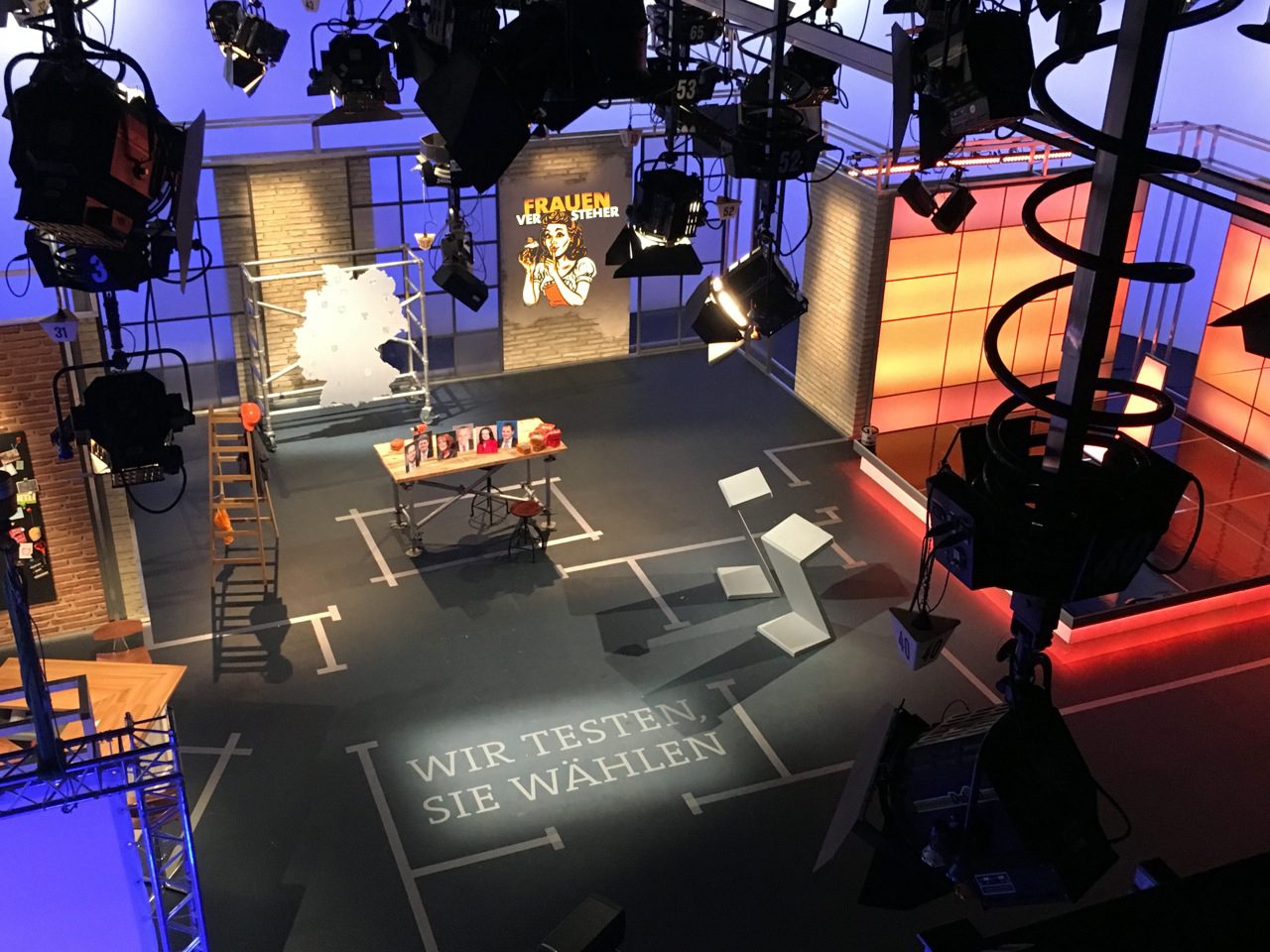Cäcilia Gernand works as a freelance scenographer and set designer and studied with us from 2008-2010 on the master’s program Stage Design_Scenic Space. She designs film and stage architecture for ARD, ZDF, SWR and many other clients. In addition, she now teaches scenography herself as a lecturer.
You previously studied interior design and set design – did you already have your current profession in mind when you began your studies at the TU? With what expectations did you start your studies? Did your goals change during your studies?
I began my studies with the expectation of broadening my view, also in order to be able to integrate my artistic-creative concerns more into my work and to experience the topic of “space” in its complexity and to understand it even more clearly.
I was already working as a film architect and set designer before I started studying at the TU. What has changed for me is the idea-finding and concept phase as well as the conscious development of atmospheric moods. I research much more intensively and broadly, experiment more, prefer to work interdisciplinarily, e.g. take elements from stage design, integrate them into a design and thus create new spatial contexts. It is important for me to work intensively on the content before I develop a new design. My motto is: The design develops from the content and must make it visible and tangible on a sensual level. In addition, I noticed during my studies that I have a solid background due to my many years of professional activity and that I like to pass on this knowledge. This led to the desire to teach. In the meantime, I work as a lecturer for scenography at a university and organize seminars on topics such as set design, cinematic scenography as well as experimental space. I like to work with students across disciplines and explore new connections between perception, urbanity and space, among other things.
What was your focus during your studies? Was your interest more in stage design or scenic space? How did your interest develop, deepen?
My focus in my studies was on scenic space. I am fascinated by the fact that this subject is so interdisciplinary and diverse. It uses the possibilities of different disciplines from film, art, theater, literature, graphics, performance, sound… I understand it as a holistic extension of stage design, also to be able to reach people on a sensual, emotional and atmospheric level.
In addition, I see it as an opportunity to apply and expand my artistic-creative-experimental interests.
What was special about studying at the TU Berlin? What did it mean to live in a cultural metropolis like Berlin while studying?
What was special about studying was the intensive practical relevance, the internationality of the students and the wide range of electives, workshops and lectures. In addition, we had spacious studios that we could use day and night; there was an open-minded, stimulating and communicative atmosphere between lecturers and students. Furthermore, I found it exciting to have lecturers who all came from practice, had a lot of knowledge to impart, gave suggestions and impulses as well as the opportunity to make new contacts through them.
Of course, it’s also great that Berlin is a creative, innovative, stimulating and diverse metropolis that offers so many cultural opportunities, from high culture to subculture, like almost no other city, and that really invites you to get active and get involved yourself.
What memories do you have of the TU BBSR program? What particularly influenced you during your studies for your later professional life/activity?
I was particularly influenced by the intensive study of perception and space. Through my studies I have once again gained a completely new relationship to this aspect and pay much more attention to this level in my concepts and design processes. In 2013 I started with video performance and performing play, which again opened up completely new artistic options for me. Especially the components of play and spatial perception give the possibility to make the space also physically tangible and understandable. It is only through “experiencing it myself” that, for example, the positioning of the figures in space becomes clear in its meaningfulness. These experiences have inspired me to develop workshop concepts with the themes of spatial experience, creativity and participation, as I have noticed a high demand for these among my students.
I also particularly remember the lively and international atmosphere among each other. There were the two Greek women, a Belgian, a Brazilian and a Swiss who of course all contributed to this creative, lively atmosphere and got fully involved with their cultural background, which made the whole thing even more exciting.
What tips would you give to someone who wants to become successful as a freelance scenographer?
Make as many contacts as possible and don’t be afraid to approach people. I also think it’s important to go to colloquia to hear about new trends, current developments and discussions and to be in exchange with colleagues, to take part in the Theater Days and to use every opportunity to network.
Is there anything you would do differently today?
I would do my studies earlier. The chance of getting into a different field of work is much greater than when you’re over 45.







